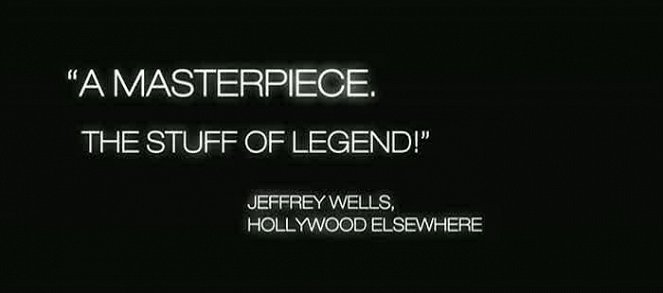Director:
Cristian MungiuGuión:
Cristian MungiuCámara:
Oleg MutuReparto:
Anamaria Marinca, Laura Vasiliu, Vlad Ivanov, Alexandru Potocean, Tania Popa, Cerasela Iosifescu, Doru Ana, Eugenia Bosânceanu, Luminița Gheorghiu (más)Sinopsis(1)
Otilia y Gabita comparten habitación en una residencia de estudiantes. Ambas van a la universidad en una pequeña ciudad de Rumanía durante los últimos días del comunismo. Otilia alquila una habitación en un hotel barato. Han quedado con un tal Sr. Bebe por la tarde. Gabita está embarazada, el aborto es ilegal y ninguna ha tenido que enfrentarse a algo así antes. (Golem Distribución)
(más)Reseñas (6)
Romania under Ceausescu, the year of Our Lord 1987. Waiting in line to buy food, widespread bribery and other totalitarian wounds on the soul of society. If you get pregnant during this period, there’s not much to look forward to. Especially if you are a poor student at an advanced stage of pregnancy who cannot keep the child. Trials and tribulations surrounding an abortion and life toward the end of Ceausescu’s regime in general. Raw, perfectly acted and, for us Czechs, a topic close to our hearts. A strong and very powerful testimony with extraordinary minimalist camerawork.
()
I definitely don't claim that this is a bad movie, but the expectations were too high in this case, and during the final scene, I was thinking, is this really the end? Is there nothing else coming? Are you telling me this film won at a category A festival and is considered by film fans and critics alike as the European film event of the year? The thing is, this film somehow deceives in its substance and offers substitute emotions, or rather, in my opinion, it fails precisely in what it is most adored for, i.e., a statement about a certain country and political system. Many reviews enthusiastically admire its amazing authenticity, but how many of those viewers experienced communist Romania first-hand? I haven't been there, but from the testimonies of eyewitnesses, I know that even ten years after the revolution, some places in the countryside had no electricity, many remote areas are today economically worse off than during Ceausescu's regime, and the mountainous regions are depopulating. Comparing the former Romania to Czechoslovakia is misguided, as the situation there was disproportionately worse and, above all, systemically different. The abortion that is at the core of Mungiu's film, is presented as purely a technical problem. Those girls, just like the other film characters, are not victims of the system, but part of it. Polish films of moral unrest were able to address moral conflict issues in the behavior of their characters during the deep communism of the 70s and 80s, whereas here, a college student undergoes an abortion of a fetus that is merely an obstacle to her career. We learn very little about the system itself, and it is necessary to realize that abortions were also prohibited in a number of European countries in the recent past, and a similar film could be made in present-day Poland, in a democratic system. Since 1993, abortion there has been limited to the absolute minimum of possibilities. That pre-revolutionary Romania was an inhospitable and freedom-restricted place to live in is quite evident in some places, but that is just a secondary motive. If the main problem for Romanian college students in dormitories was obtaining a certain brand of Western cigarettes, then those girls really didn't have a bad life. In short, it is watchable but, from my perspective, also an overrated film with an unclear concept. Overall impression: 60%.
()
Cinema verité in cool artsy circles. A film that doesn’t depart from reality even in a single scene or dialogue, always leaving the viewer with the characters a bit longer than they would like. And it works remarkably well, though I didn’t see anything masterful or very progressive behind the unarguably seminal and strong premise and ideas, but “only” distinctively precise filmmaking and the most approachable work by Béla Tarr. 80%
()
Visto durante el Challenge Tour 2015: 30 días con el cine mundial. Película número 8 - Rumania. Tengo un nuevo líder en la clasificación general. Sobre esta película ya lo sabía desde hace mucho tiempo, pero de alguna manera no pude verla por mucho tiempo hasta que la puse. Entiendo perfectamente por qué tuvo éxito en Francia, los franceses escuchan sobre estos temas. La atmósfera helada de una habitación de hotel y un dormitorio estudiantil en la Rumania socialista se me transmitió incluso en el calor del apartamento de Dejvice. Aunque es una historia íntima en la que no se dice demasiado aparte de la celebración familiar, en algunos momentos ni siquiera respiraba de la tensión. Literalmente, me impresionó la actuación de Anamarie Marinci y el repugnante y increíblemente frío Vlad Ivanov. No me sorprendería si estos actores recibieran ofertas a montones. Un espectáculo impresionante.
()
In the flood of all sorts of family or relationship wannabe dramas from the West, Romanian filmmakers came out in 2007 with an excellent human story which managed to surpass even my very favorite (and also un-American) Amores Perros in its emphasis, controversy, and above all in its message. Raw, European, powerful, and above all – believable. A perfect drama.
()

